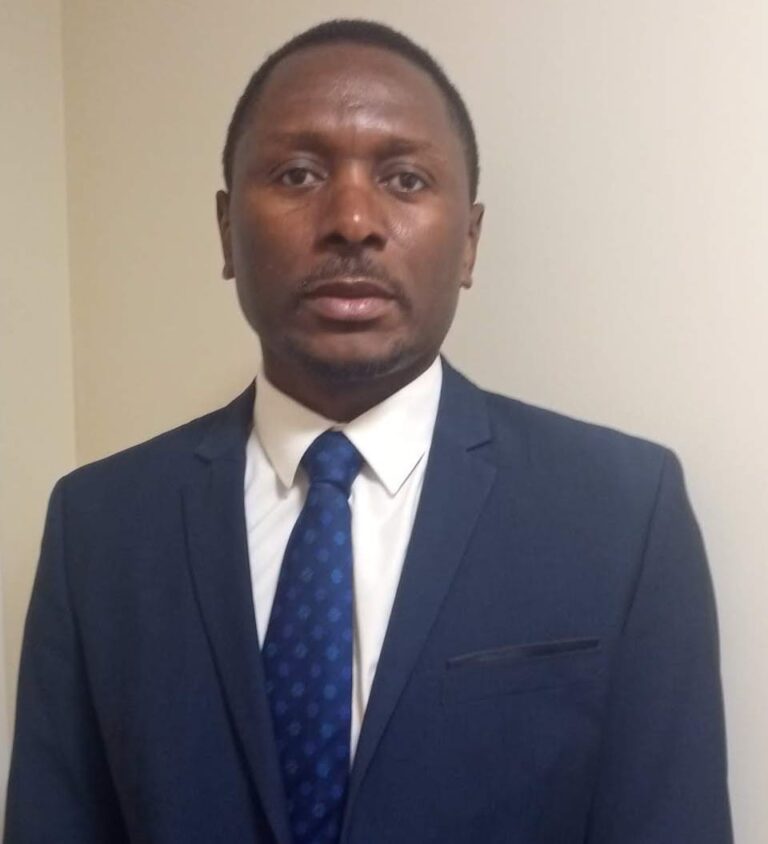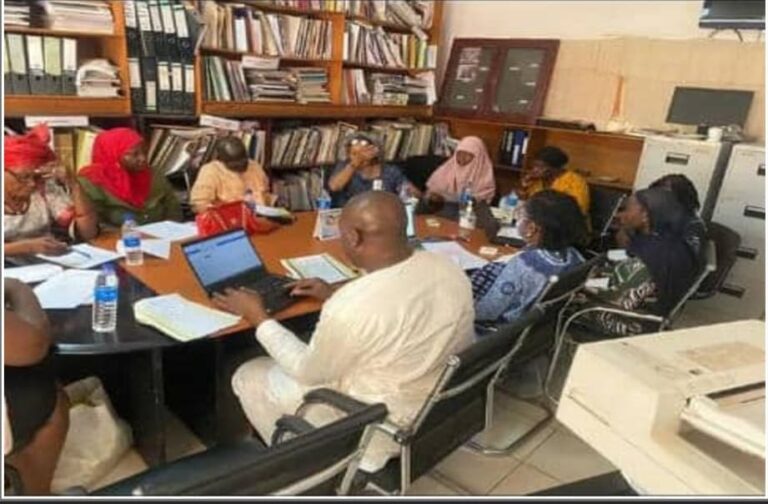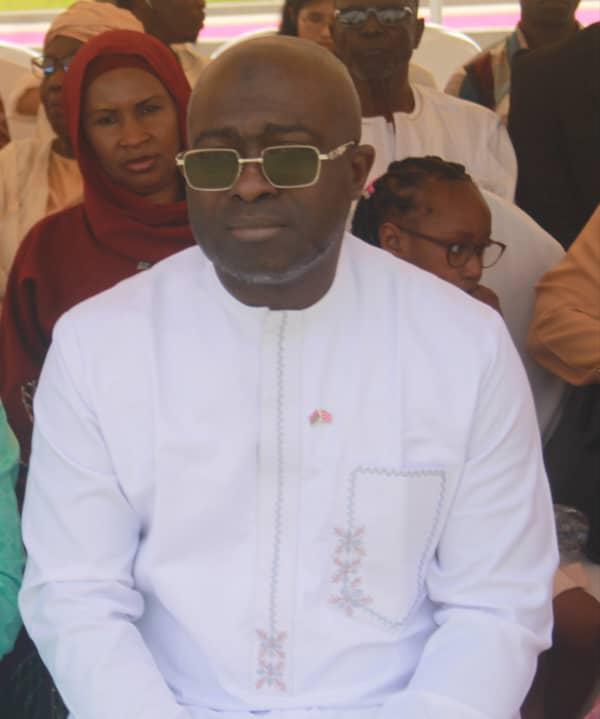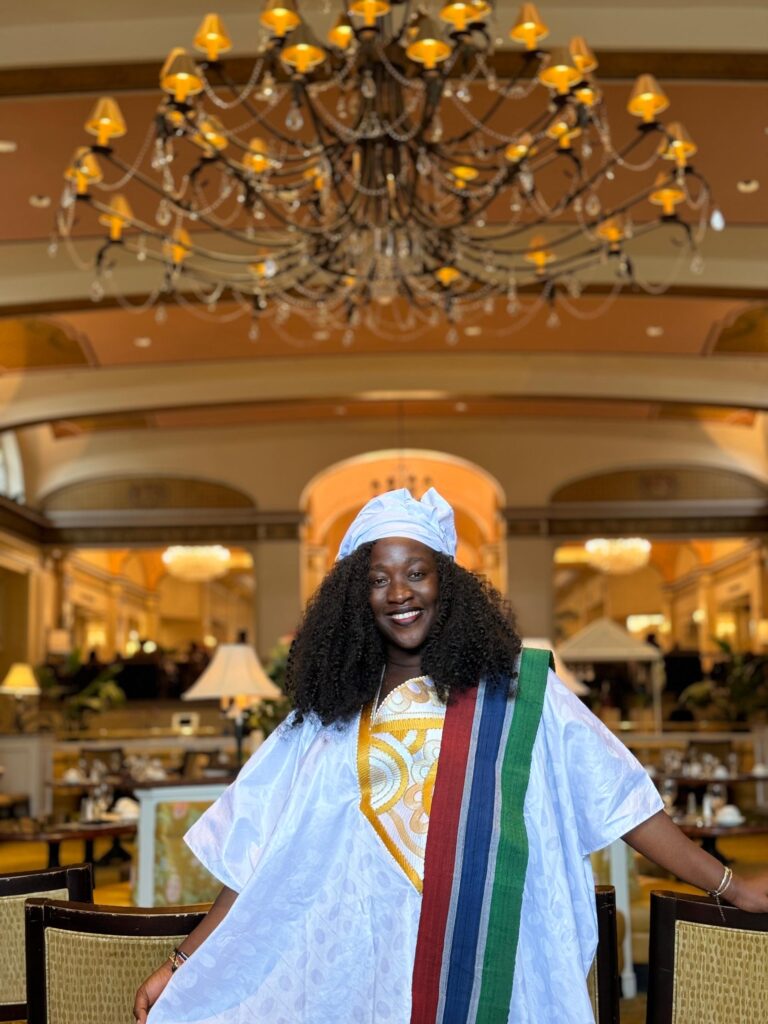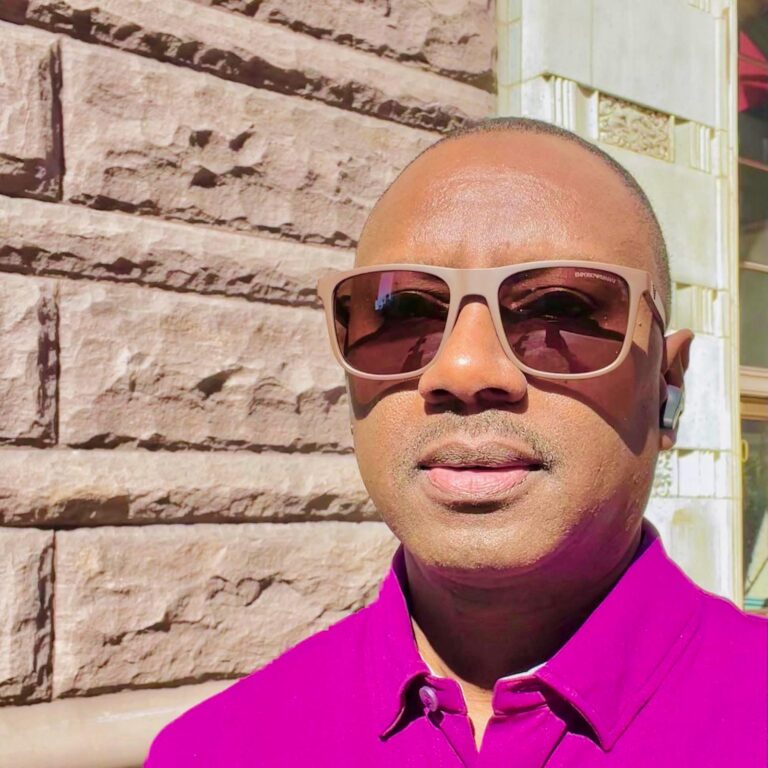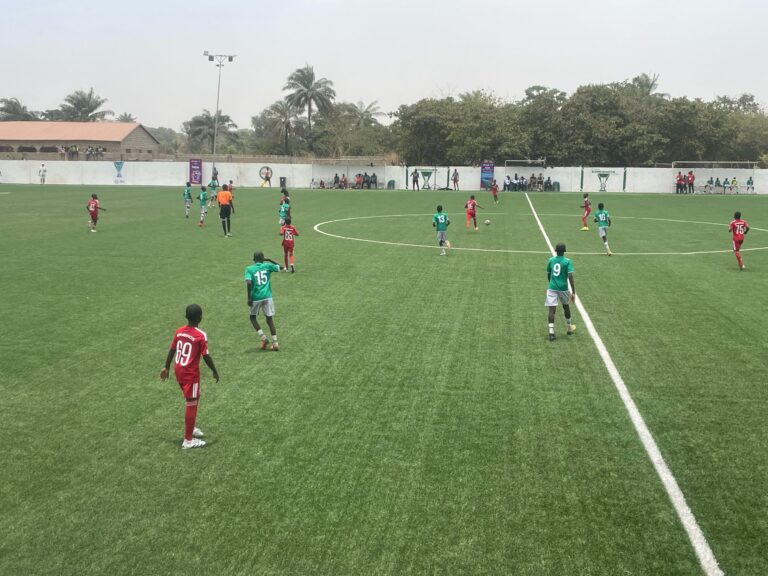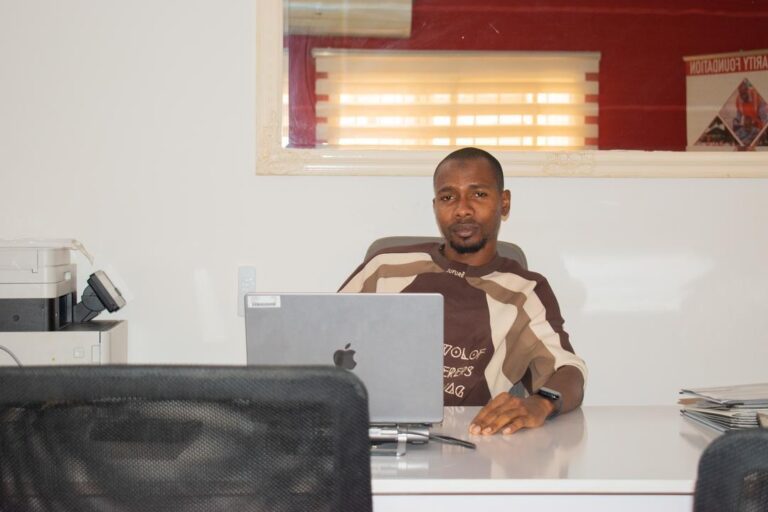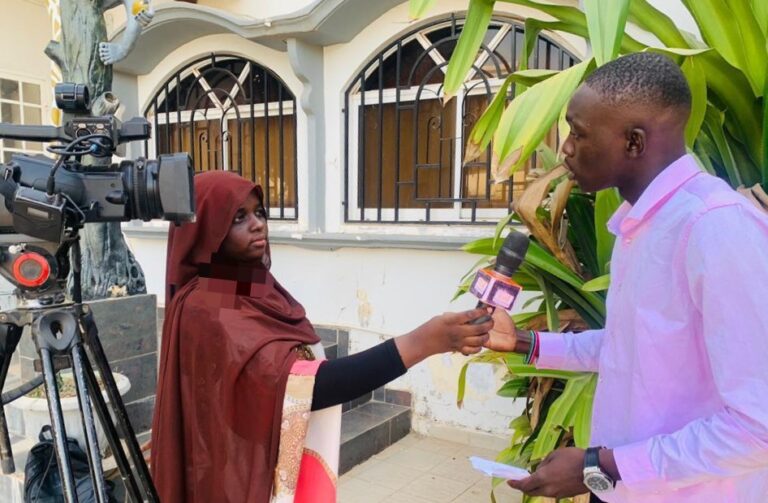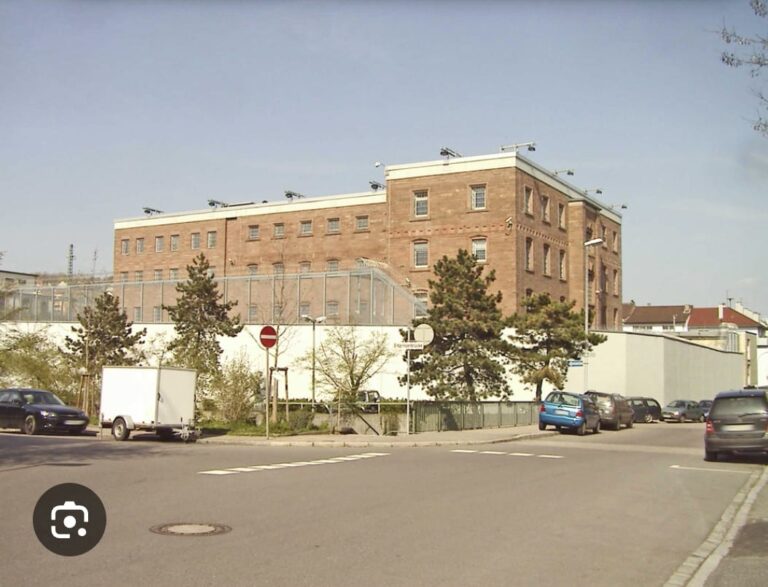By Dave Manneh – Research Lead
Securing Futures: Land Rights Action Collaborative
“In the aftermath of The Republic newspaper’s explosive investigative article, Gambians confront uncomfortable truths about the continuity of injustice across political transitions. This piece connects our specific land rights concerns to these broader patterns of asset mismanagement that continue to impoverish our country.”
Background to This Analysis
This opinion piece is a response to a segment on “Coffee Time with Peter Gomez,” broadcast on Wednesday, 29 April 2025, featuring Mustapha Taf Njie. During this interview, Njie addressed questions regarding controversial land acquisitions in Brufut and Yundum during Yahya Jammeh’s regime.
Securing Futures submitted several pre-broadcast questions to Mr Gomez, including: “Your company developed Brufut Gardens and AU Villas on land the Manneh and Sanneh clans formerly held. What compensation did you provide to the community, and what percentage of the developments’ current market value does this represent?”
In his response, Njie defended the acquisition process, essentially justifying what we characterise as state-sanctioned dispossession. He claimed he provided compensation through “government-stipulated methods” while suggesting the development positively affected the national housing sector.
Securing Futures subsequently recorded an audio rejoinder challenging these claims, documenting that the clan rejected compensation payments and Njie initially attempted to impose GMD250,000 (less than $6,000) for over 30 hectares of prime land – a figure the clan explicitly rejected.
This case exemplifies a broader pattern of asset mismanagement and undervalued transfers that characterised the Jammeh era and continues after his forced exile.
The groundbreaking investigative piece by The Republic titled “The Assets of Gambia’s Former Dictator Go for a Song” has sent shockwaves through Gambian society both at home and abroad. This documented exposé revealed state officials sold assets worth approximately $362 million for only $23.7 million – a recovery rate of less than 7%.
The investigation’s detailed documentation of specific transactions, complete with names, dates, and figures, has transformed what Gambians once whispered as suspicion into incontrovertible public record. This systematic undervaluation constitutes a significant depletion of national resources that demands not just forensic scrutiny but immediate accountability.
From Loss to Legacy: Why Misappropriated Land Still Matters
The Brufut case, viewed alongside The Republic’s exposé, exposes more than historical injustice. It underscores the state’s continued failure to pursue genuine accountability. These incidents show how elites exploit bureaucratic procedures and legal ambiguities to shield themselves from scrutiny. At the centre lies a pressing question: who bears responsibility when state-backed dispossession and asset undervaluation occur under the guise of legality?
The likes of Njie who profited from repression remain largely untouched in the Gambia’s post-authoritarian era. They engage in reputation laundering and deflect blame, when challenged.
Accountability vs. Evasion: Analysing Post-Authoritarian Responsibility
The radio program is a clear attempt to cleanse and enhance his public image. And his response reveals not only a lack of transparency regarding compensation but also shows what transitional justice scholars term “responsibility deflection.” He attempts to evade accountability for actions taken during a period of dictatorship by attributing them solely to the regime’s directives. Rather than addressing the clan’s dispossession directly, Njie resorts to vague references to “government-stipulated methods” while avoiding acknowledgment of the disparity between compensation offered and the land’s market value.
These evasions reflect a broader pattern of opacity that hampers Gambia’s recovery from authoritarian rule. As political scientist Kathryn Sikkink argues in her work on “cascades of justice,” sustainable democratisation requires addressing not only direct perpetrators of abuses but also the network of beneficiaries who profited from rights violations. For Sikkink, sustainable democracy requires dismantling the “political economy of repression” – holding both perpetrators and their enablers accountable through prosecutions, reparations, and systemic reforms.
The case of Jammeh’s seized assets, as documented in The Republic demonstrates how officials systematically undermine transparency mechanisms: they replace open auctions with closed bids, withhold valuation reports, and deny access to purchasing records despite formal requests from journalists, activists, and lawmakers.
The investigation revealed how Justice Amina Saho-Ceesay ruled against premature disposal of these assets, calling it a “travesty” of justice, yet then Minister of Justice Abubakarr Tambadou circumvented her decision through procedural manipulation – actions Justice Ebrima Jaiteh later acknowledged constituted an “abuse of process.”
While Tambadou has publicly denied wrongdoing in subsequent statements, the documentary evidence compiled by The Republic presents a damning chronology of procedural irregularities that he has yet to adequately address.
In the radio interview, Njie further attempts to deflect criticism through classical whataboutism argumentation, referencing “undeveloped land” opposite his Brufut development and citing an alleged post-Jammeh inquiry that purportedly not only vindicated him but resulted in compensation payments to him. Such rhetorical manoeuvres divert attention from the central issue: the Jammeh regime violated the constitutional rights of the clans through state-sanctioned land appropriation.
Thus, the documented facts remain: the state dispossessed the clans of their ancestral land, attempted to impose compensation the Manneh clan formally rejected as inadequate, and yet the first post-Jammeh administration purportedly compensated Njie. The nature of this compensation, the name, and the remit of this inquiry body; or the findings of the inquiry, he did not disclose. This highlights the persistence of non-transparency in post-authoritarian governance – if there is in fact any credibility to what Njie said.
Constitutional Violations: Accumulation by Dispossession
The dispossession of communal lands across Kombo represents a clear violation of constitutional rights. Section 22 of the Gambian Constitution explicitly protects property rights and mandates fair compensation for compulsory acquisition. Jammeh “gifted” ancestral lands to private developers without adequate compensation, exemplifying what political economist David Harvey terms “accumulation by dispossession” – the transfer of public or communal assets to private hands. As elsewhere, Accumulation By Dispossession (ABD) by Njie and others reveals capitalism’s reliance on coercion – from colonial exploitation to modern financial predation. It highlights how neoliberalism weaponised state power to enrich elites while eroding communal rights.
In this context, the recent remark by presidential aspirant Essa Faal – who described communal lands as “dead capital” in an interview on “Coffee Time with Peter Gomez,” – warrants scrutiny. This framing reflects a mercantilist and reductionist approach to land, one that prioritises market activation (i.e., demand creation, financialisation), and treats lands as idle unless commodified. But such language reinforces precisely the kind of extractive thinking that enabled Jammeh’s land grabs in the first place. It legitimises the transfer of land from communities to elites by painting customary ownership as inefficient. It specifically reflects deeper ideological assumptions about property, productivity, and legitimacy that are at the core of land commodification and accumulation by dispossession.
Through this theoretical lens, Njie’s case exemplifies a pattern of elite capture wherein select individuals accumulated extraordinary wealth through preferential access to resources – particularly land. Scholars of authoritarian political economy have documented how such “crony capitalism” creates distorted markets where connections rather than competition determine resource allocation.
Just as Gambia initiated processes to address Jammeh’s ill-gotten assets through the Janneh Commission, similar accountability mechanisms must extend to those who benefited from his unconstitutional actions. The dispossession of lands belonging to hundreds to enrich individual elites represents precisely the type of injustice the New Gambia’s democratisation processes should aim to remedy.
This pattern of grossly undervalued compensation defined standard practice under Jammeh. We find it both unfortunate and unacceptable to witness its continuation under the Barrow administration. In a case with notable parallels to the Brufut dispute, The Republic exposed how a connected individual resold a property worth approximately D8.5 million in Fajara to its original owner for merely D3.15 million. This is just D150,000 more than Jammeh paid 15 years earlier, despite the exponential increase in land values in that area.
Coercion, Rejection, and Legal Challenge: Documenting Resistance
This systemic pattern of dispossession not only underscores the ongoing erosion of constitutional protections but also highlights the critical need for continued reforms to prevent the perpetuation of unjust practices in the post-Jammeh era.
We must state that Njie’s much-touted compensation process bypassed normal administrative channels. With the apparent complicity of state security functionaries, he, and elements of the Jammeh regime entrusted the compensation payment to the late Darba Marenah (then Director-General of the National Intelligence Agency) and the late Baba Jobe (then Secretary to Jammeh). The use of security apparatus rather than standard civil procedures for property transactions represented a clear attempt at intimidation. It was a tactic the clan elders recognised and refused to succumb to, rejecting the compensation entirely.
In a tragic development that illustrates the regime’s brutality, the Jammeh government subsequently murdered both men.
Undeterred by these intimidation tactics, the Manneh clan initiated civil suit 44/03 (Brufut Manneh clan versus Taf Holdings Ltd), directly contradicting any implication that they accepted compensation. The legal record clearly establishes their unwillingness to part with their ancestral land. This legal challenge highlights that the transaction lacked mutual consent – a fundamental requirement for legitimate property transfers under both statutory and customary law.
Beyond False Binaries: Development Without Dispossession
The Brufut case exposes what development scholars term the “false binary” between development and rights.
Too often in The Gambia, we face artificial choices: development or tradition, investment or rights, progress, or justice. Applied development theorist Amartya Sen argues that genuine development enhances freedoms rather than restricting them, creating what game theorists call positive-sum rather than zero-sum outcomes. Sen argues that genuine development is fundamentally about expanding human freedoms. These include freedoms such as health, education, political participation, and economic opportunities – rather than the mere increase in GDP or material wealth.
When compensation amounts to less than $6,000 for land with an estimated market value of over $12 million, the transaction becomes exploitative and extractive rather than developmental. This represents less than 0.05% of the land’s value, demonstrating the egregious nature of the undervaluation. Economists term this “rent-seeking” rather than value creation.
True national progress requires development models that enhance community agency and capabilities. Political philosopher John Rawls’ “difference principle” suggests that inequalities justify themselves only when they benefit the least advantaged. By this standard, developments that generate enormous wealth for elites while providing minimal returns to communities fail the test of justice.
Drawing on Elinor Ostrom’s work on common-pool resources, we recognise that communal lands often operate under sophisticated Indigenous governance systems that predate colonial disruption. Rather than viewing these as obstacles to development, a more productive approach would integrate these governance mechanisms into contemporary development planning.
Post-Authoritarian Accountability: Addressing Beneficiary Networks
In line with this broader approach, it is crucial to not only recover assets directly linked to Jammeh’s regime but also to create structures that empower communities to reclaim their rights and restore the integrity of land ownership in the post-authoritarian Gambia.
Transitional justice scholars increasingly recognise that post-authoritarian accountability must address not only direct perpetrators but also beneficiary networks. Pablo de Greiff, former UN Special Rapporteur on transitional justice, argues that sustainable peace requires addressing the full spectrum of those who profited from rights violations.
The case of Njie and others who accumulated wealth through land dispossessions challenges us to expand our transitional justice framework beyond focusing on Jammeh alone. Drawing on “transitional justice from below,” framework, we might consider how communities dispossessed under Jammeh’s authoritarian rule can reclaim agency in the Barrow era.
Just as we pursue recovery of Jammeh’s direct assets, we must establish mechanisms to review and potentially reverse land acquisitions that occurred through constitutional violations. This approach aligns with “restorative justice” and focuses not on punishing wrongdoers but on restoring rights and relationships.
Healing Forward: A Framework for Equitable Land Governance
How might Gambia move forward from such disputes toward more equitable land governance?
Drawing on comparative experiences and theoretical frameworks:
First, we must establish transparent, participatory processes for development planning that recognise both statutory and customary rights—whilst prioritising customary rights. The Feedback and Recommendations Securing Futures provided to the Ministry of Lands on the draft National Land Policy (2026-2035) parallels internationally recognised standards that can inform land reforms.
Second, communities must have meaningful input before, not after, development decisions affect their lands. This embodies what planning theorist Sherry Arnstein terms “citizen power” rather than tokenistic consultation. When government officials communicate major decisions through notorious security agencies rather than proper administrative channels, as happened in Brufut, they erode public trust.
Third, the state should implement fair compensation standards based on market values when land acquisition genuinely serves the public good. This requires independent valuation by certified professionals with results made public. This embodies what transparency advocates call “radical transparency.”
Fourth, we need accessible dispute resolution mechanisms that balance power differentials between developers and communities, ensuring that financial resources do not determine judicial outcomes. “Legal empowerment approaches,” provide models for supporting communities in asserting their rights.
Fifth, our transitional justice mechanisms must extend beyond Jammeh himself to address the network of beneficiaries who profited from constitutional violations and excesses. This includes establishing an independent commission to review land acquisitions that occurred during the dictatorship. This should be like land commissions established in post-conflict settings like Rwanda and South Africa.
Finally, our country must establish robust safeguards against conflicts of interest in public asset management. As former Finance Minister Amadou Sanneh criticised regarding asset sales, when the same individuals act as “judge and jury” in transactions, they imperil public interest.
National Reckoning: A Moment for National Reflection
The Njie-Brufut case offers Gambians a moment for critical national reflection. Do we want development that empowers communities or elites? Do we want governance systems where intimidating security forces deliver “compensation,” or where communities participate as equals in development planning? Do we intend to hold accountable only Jammeh, or also those who built fortunes through his tyrannical rule?
The Manneh clan’s refusal to accept coerced compensation demonstrated moral courage that commands respect and merits emulation. Their stance challenges us to create a nation where such courage becomes unnecessary; where development enhances rather than dismisses community rights.
The path to social harmony lies not in suppressing difficult conversations but in conducting them openly, with mutual respect and commitment to equitable outcomes. Only then can we build developments on foundations solid enough to truly last.
Conclusion: Constitutional Values and National Integrity
The Brufut issue offers a mirror for a new democratic Gambia. It challenges us to choose between building a society where constitutional principles prevail, or one that allows legacies of dispossession and impunity to persist.
The revelations by The Republic that hundreds of millions in seized assets yielded only $23.7 million in recovery have catalysed unprecedented public discourse across Gambian society. The investigation’s digital dissemination – including through social media platforms like Facebook where activists like Ben Suwareh have embarked on detailed serialisations have elicited discussions and much soul searching. The investigative piece has created a watershed moment in post-Jammeh accountability politics.
Gambians-abroad, who often maintain financial connections to homeland development, have expressed particular outrage at these findings, with many questioning their continued investment in a system where public assets remain vulnerable to insider dealing. When officials conduct deals through closed bids, stonewall inquiries, and sideline court-appointed receivers, these actions threaten not only our democratic transition and constitutional governance but also the economic confidence necessary for national development.
Gambia’s national motto – “Progress, Peace, and Prosperity” – encapsulates our aspirations. These three values must proceed in tandem, for prosperity without justice brings neither progress nor peace. The Republic’s investigation has highlighted how the current distribution of wealth – particularly land and property – reflects not market efficiency but authoritarian patronage networks that persist beyond regime change.
This revelation has resonated with younger Gambians but particularly those of Kombo who face dispossessions and prohibitive barriers to expanding their families from the homesteads to their former farmyards now declared “state lands.” They watch helpless while well-connected elites control vast properties acquired through criminal means. When victims of human rights violations await reparations while these elites retain assets acquired through those violations, our society merely exchanges one form of injustice for another.
Let us be clear: the ownership of communal lands predates the Anglo-French Convention of 1889 that created the Gambia by centuries. These lands are not the nation-state’s to arbitrarily redistribute and reallocate. Just as we seek accountability from Jammeh himself, we must also address the enduring consequences of his unconstitutional “gifts” to those who profited from his regime.
In the words of political philosopher Hannah Arendt, reconciliation requires “facing reality, whatever it may be.” For Gambia, this means confronting not only the abuses of our authoritarian past but also their ongoing beneficiaries. It means creating a future where land rights and human dignity stand at the centre of our development vision.
The public conversation sparked by The Republic’s stellar journalism represents precisely the kind of reality-facing that Arendt envisioned – a collective reckoning that bridges domestic and emigrant and transnational communities in demanding protection of landed inheritance and a more just distribution of national resources. As that conversation continues in households, online forums, and community gatherings both in The Gambia and abroad, we must insist that it leads not to wringing arms in moral indignation as a collective sign of outrage but to concrete institutional reforms that finally deliver on the promise of democratic transition.
Authored by:
Dave Manneh – Research Lead
Securing Futures: Land Rights Action Collaborative
Kombo Gunjur
The Gambia
Securing Futures: Land Rights Action Collaborative (SFLRAC) is a registered NGO-think tank hybrid based in The Gambia. Committed to empowering Kombo’s dispossessed land-owning communities, SFLRAC combines participatory action with rigorous research to secure ancestral land rights, advocate for equitable governance policies, protect cultural heritage, and advance sustainable development.




